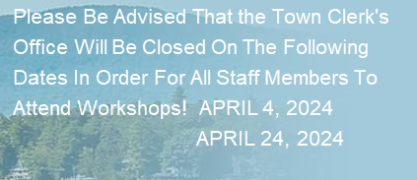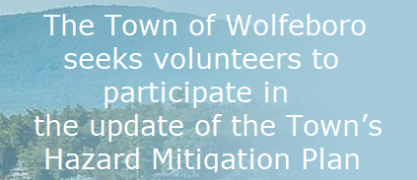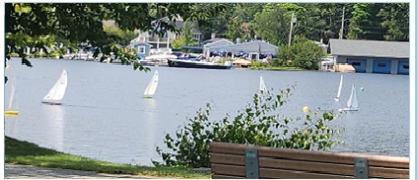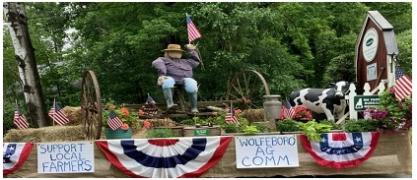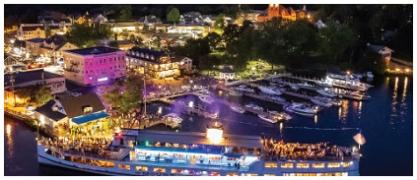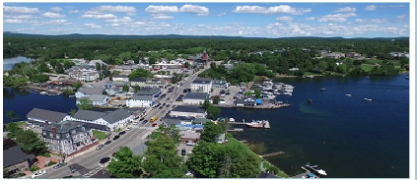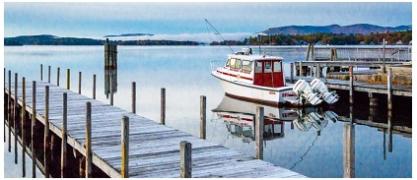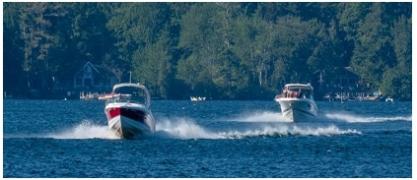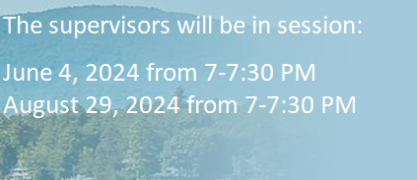In The News
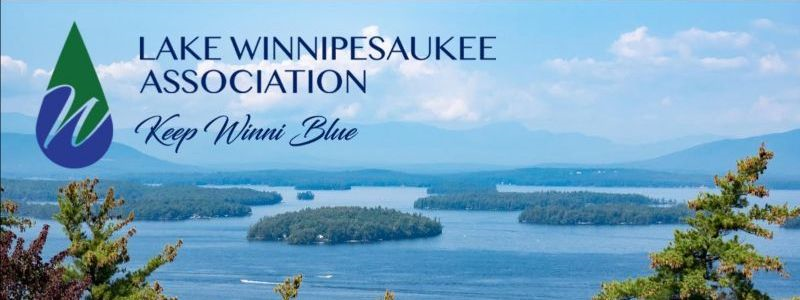
Each winter, the New Hampshire Department of Environmental Services (NHDES) sends out a timely reminder that dumping snow into waterbodies is illegal. This announcement pertains to area towns, businesses and individual homeowners and affects us all. "There are several different concerns regarding disposal of snow cleared from streets, (driveways) and parking lots ranging from aesthetic concerns, such as minimizing the visibility of debris and huge snow piles, to environmental concerns,, such as protection of groundwater quality, drinking water supplies, surface water quality, and aquatic life."
Please be mindful of where your snow is piled, where the melted runoff flows and how it affects the watershed. Water moves. That's its nature. How you treat the snow can affect our beautiful blue waters!
Protect what you love!
Posted January 2023
CYANOBACTERIA ALERTS AND ADVISORIES
NHDES has removed the two advisories put in place for Ellacoya State Bech, Gilford, and Jockey Cove in Wolfeboro. While the bloom accumulation has dissipated, NHDES advices that lake-goers remain alert and look out for green surfaceaccumulation and green clouds in the future around the lake. The advisories were issued June 29th and removed July 1st.
Summer has just begun, but the reports of cyanobacteria are coming into LWA and NHDES at an alarming rate. Over the last few days, we are hearing about sightings all over the lake. NHDES has issued an official cyanobacteria advisory for Winnipesaukee at Ellacoya State Park beach, Gilford and for Jockey Cove, Wolfeboro. Water quality samples were collected and Cyanobacteria (Dolichospermum) were estimated in concentrations of 199,733 cells/ml at Ellacoya and 414,667 cells/ml in Jockey Cove. Advisories are issued when cyanobacterial cell concentrations exceed 70,000 cells/mL. The advisory is not based on a toxin evaluation and is intended as a precautionary measure for short term exposure.
Posted June 30, 2022
What is Wolfeboro Waters, you ask?
Wolfeboro, NH…. Since December 2018, a group of volunteers lead by Wolfeboro Board of Selectmen has been meeting on the topic of lakes located in Wolfeboro. It formed initially as the Cyanobacteria Committee in response to concern about a cyanobacteria siting in Winter Harbor on Lake Winnipesaukee during that year. Those involved soon recognized that protecting the future of our waters is a broader task than a sole focus on cyanobacteria. In March of 2020, the Committee voted to change its name to Wolfeboro Waters.
Many more people have joined efforts by volunteering on one of Wolfeboro Waters’ subcommittees, Mitigation and Prevention, Assessment, and Communication.
“At this point a great amount of information has been collected, and Wolfeboro Waters is committed to working with all lake associations as we continue to grow awareness of the importance of the quality of water in our lakes, ponds and streams,” expresses volunteer leader of the Communications Subcommittee Dr. Abigail Adams.
“We would like very much to share where we are at, and what is on the horizon,” explains Adams.
Residents and visitors alike are invited to find out by talking with some Wolfeboro Waters’ volunteers at one of its upcoming table-talks around town.
“Please stop by for a few minutes, we look forward to saying hello,” encourages Adams.
Wolfeboro Waters will have a table set up outside, on three days at three different locations: July 8 from noon to 4:00p.m. at Clark Museum Complex (location of the farmers market on that day); 10:00a.m.-4:00p.m. July 10 at Hunter’s Shop `n Save; 10:00a.m.-4:00p.m. July 17 at Harvest Market.
“The Town of Wolfeboro Public Works Department has implemented new mitigation projects and coming up the Lake Winnipesaukee Association will work on a management plan for the Wolfeboro Bay sub-watershed which includes Back Bay,” Adams describes. “There is a lot we would like to share with the public.”
Additional information on Wolfeboro Waters can be found at https://wolfeborowaters.org .
Wentworth Watershed Association Summer Kickoff:
June 26th, 5:30-7:00pm at the Winnipesaukee Winery
https://mailchi.mp/d8aba5de91d3/summer-kickoff
Early Toxic Algae Blooms Prompt Warnings For N.H. Lake Beaches:
https://www.nhpr.org/post/early-toxic-algae-blooms-prompt-warnings-nh-lake-beaches#stream/0
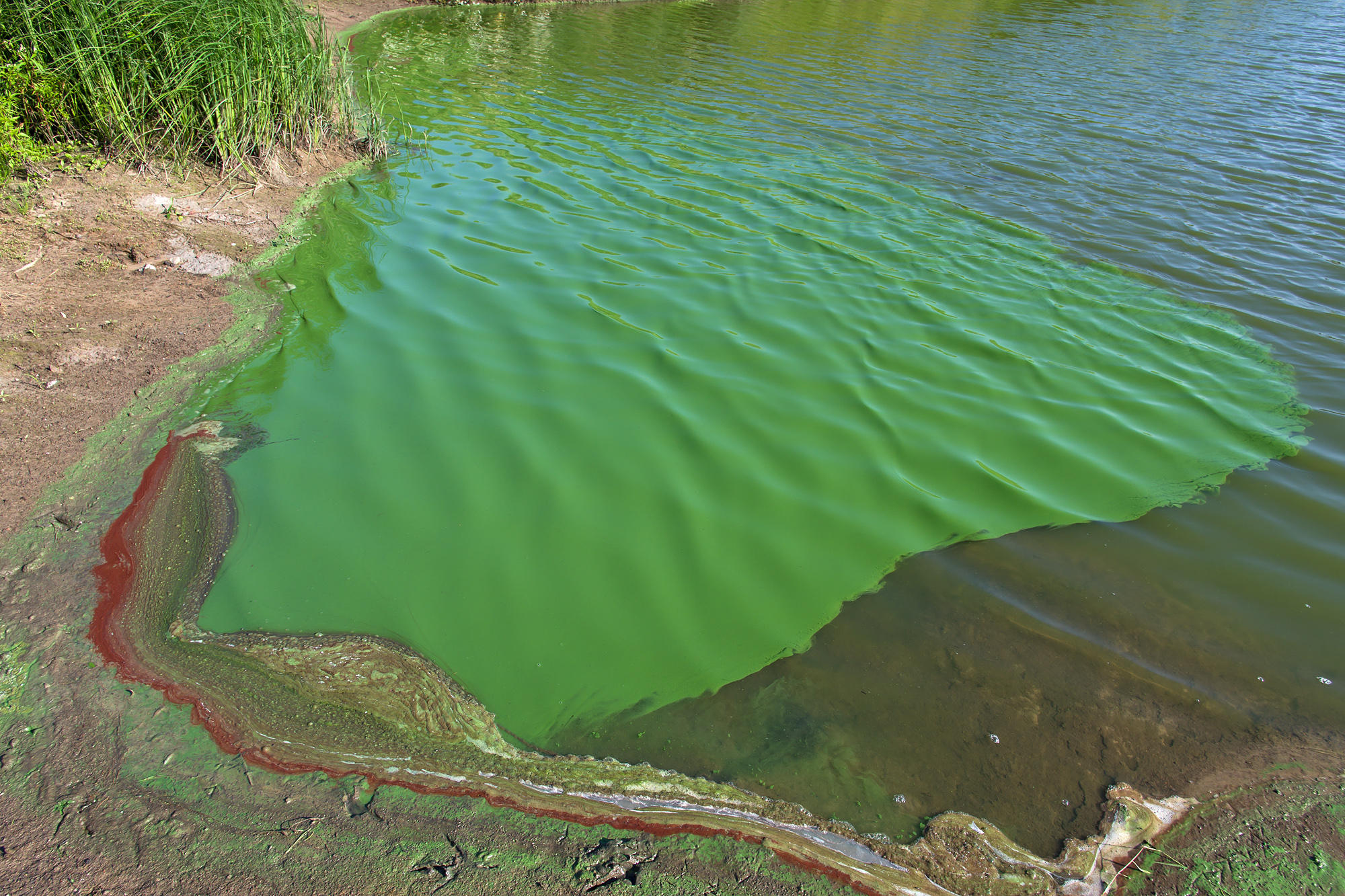
Photo Credit: Wikimedia Commons
New Hampshire's lakes are seeing more toxic algae blooms than normal this early in the season, according to state officials.
If you think you've spotted a cyanobacteria bloom, you can report it to the state at (603) 848-8094 or HAB@des.nh.gov. See more at full story linked here.
March, 2021: New Watershed Management Plan is Here!
Statement of Purpose
As a major economic asset to the Town of Wolfeboro, as well as the State of New Hampshire, Lake Winnipesaukee deserves protection of its irreplaceable water quality, the feature that most draws visitors to our community and enhances the quality of life for those who call this place home.
Currently, however, due to the occurrence of cyanobacteria, Winnipesaukee is found on the EPA’s most recent list of threatened or impaired waters for primary contact recreation use.
Experience shows that the most effective approach for monitoring and protecting valuable water resources like Winnipesaukee is a comprehensive watershed-based management plan. In fact, such plans are a requirement for securing EPA funding for stormwater mitigation and protection projects under the Clean Water Act.
Because Winnipesaukee is a shared resource, it is imperative that communities around the lake share responsibility for identifying and mitigating pollution sources that are contributing to known impairments.
Taking the lead in this effort since 2010 has been the Lake Winnipesaukee Association (LWA). Click here to download the Watershed Management Plan PDF.
November, 2020
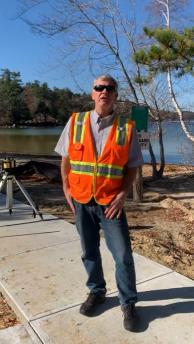
We've got some great videos of Dave Ford explaining some of the work the Town is undertaking.
September, 2020
The state is out with a first-of-its-kind report on the health of New Hampshire’s lakes, showing the effects of climate change, population growth and a decline in acid rain.
The report takes a comprehensive look at water quality trends from the past few decades or longer in 150 of the state’s lakes and ponds monitored by volunteers and state biologists.
https://www.nhpr.org/post/5-takeaways-first-statewide-report-health-nhs-lakes
LWA Annual Meeting - Results of Water Quality Study for Moultonborough Bay and Winter Harbor
Join the Lake Winnipesaukee Association (LWA) at their annual meeting on September 24th for a presentation on the results of a two-year study to assess the threats to water quality in Moultonborough Bay and Winter Harbor. The study, which builds on 10 years of effort by the LWA to develop a lake-wide comprehensive management plan for Lake Winnipesaukee, will be held virtually via Zoom on September 24th at 6:30pm.
The LWA contracted with FB Environmental Associates, out of Portland, ME, to assist with the project which involved analyzing land use, nutrient loading, water quality, and the identification of pollution sources for Moultonborough Bay and Winter Harbor. FB Environmental will present the results of their analyses, along with an action plan of strategies to protect the value, uses, and beauty of the lake for many generations.
The Moultonborough Bay and Winter Harbor Watershed Management Plan study is the sixth water quality study that the Lake Winnipesaukee Association has been involved with. This stakeholder-driven process has proven successful in assisting communities in the Winnipesaukee watershed in understanding how land use and development affects their local water quality, and provides communities, businesses, and residents with a road map and tools to achieve long term water quality improvement and protection.
Register in advance for this meeting [meeting over]
After registering, you will receive a confirmation email containing information about joining the meeting. For additional information, contact the LWA at 603-581-6632 or email mail@winnipesaukee.org. Funding for the Moultonborough Bay and Winter Harbor Watershed Management Plan came from several sources, including the towns of Tuftonboro and Wolfeboro, and section 319 of the Clean Water Act, administered by the NH Department of Environmental Services.
April, 2020:
The Lake Winnipesaukee Association is looking for a couple of part time workers as part of the Lakes Regions Conservation Corps (LRCC) this year. It is a 22.5 week AmeriCorps service program that develops skills and experiences for conservation professionals. Read more about it HERE.
Here's a new "Soak Up The Rain NH" Fact Sheet from New Hampshire Division of Environmental Services that presents ideas for actions that lakefront or watershed residents can take to diminish the effects of Stormwater Runoff. The season of heavy downpours is coming up and the sand, topsoil, and nutrients that even just one hour of heavy rain can bring into a lake can have profound consequences.
"Ice-Out" on Lake Winnipesaukee was officially declared on Monday, April 6, 2020 at 8:59 am. May seem early, but since 2002, it has been out sooner 5 different times. Earliest on record was 2016 on March 18th!
March, 2020:
New Hampshire DES now has a Lake Mapper online where you can find up to date information on New Hampshire Lakes and water quality reports for any lakes monitored under the auspices of the NHDES Volunteer Lake Assessment Program.

